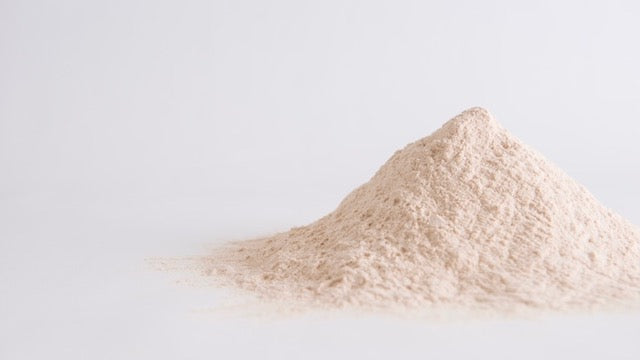
prebiotic fiber
Frequently asked questions
Prebiotic fiber is a type of dietary fiber that acts as food for beneficial bacteria in the gut improving digestion and regularity.
Prebiotics are plant fibers that nourish the good bacteria in the gut which in turn produces many health benefits. Probiotics are beneficial live bacteria that already reside in the gut. Prebiotic fiber feeds or is the "food" for your probiotics.
- Prebiotic fiber such as Baobab promotes the growth of beneficial bacteria in the gut such as Bifidobacteria and Lactobacilli.
- Prebiotic fiber increases the diversity of beneficial bacteria in the gut, which is improves overall health.
- Prebiotic fiber is fermented in the gut increasing the production of short-chain fatty acids (SCFAs) butyrate, acetate and propionate.
- Prebiotic fiber improves gut barrier integrity, overall digestive health and immune function.
- Prebiotic fiber can help improve various aspects of metabolic health, including glucose regulation and fat metabolism.
- Prebiotic fiber enhances immune function: A healthy gut microbiome supported by prebiotics plays a crucial role in supporting the immune system.
- Prebiotic fiber reduces inflammation and help decrease markers of systemic inflammation by supporting a balanced gut microbiome.
- Baobab powder is a rich source of prebiotic pectin and polyphenols that promote gut health, regularity and a healthy weight.
- Chicory root: Is a type of prebiotic fiber called inulin.
- Garlic: Rich in inulin and fructooligosaccharides (FOS), garlic supports the growth of beneficial Bifidobacteria in the gut.
- Onions: They contain FOS which helps strengthen gut flora and aids in fat breakdown.
- Asparagus: This vegetable is another excellent source of inulin.
- Bananas: Especially when unripe, contain resistant starch and inulin.
- Whole grains: Barley and oats contain beta-glucan a type of prebiotic fiber.
- Apples: They contain pectin, a soluble fiber with prebiotic effects.
- Flaxseeds: These seeds are rich in prebiotic fiber that promote healthy gut bacteria.
- Dandelion greens: High in inulin, these greens can be added to salads or smoothies.
- Cocoa: Rich in polyphenols, cocoa can act as a prebiotic and enhance beneficial gut bacteria.
- Mushrooms: Various types of mushrooms contain prebiotic fibers.
- Legumes: Beans, lentils, and chickpeas are good sources of prebiotic fiber.
Prebiotic fiber increases the feeling of fullness and can help with weight loss. Prebiotic fiber promotes the release of GLP-1 throughout the gut, a hormone that suppresses appetite.
Prebiotic fiber helps to regulate intestinal gas metabolism and can help to reduce bloating over time. Increasing the growth of beneficial bacteria helps to reduce the gas-producing bacteria which cause bloating.
Prebiotic fiber can potentially cause a temporary increase in gas and bloating which disappears within a few days. With Baobab fruit powder the recommended dose is a tablespoon daily and you can gradually increase.
Introduce prebiotic fiber gradually to allow the gut microbiome time to adjust. Start with lower doses and increase slowly if experiencing bloating.
Prebiotic fiber is considered safe for most people, including pregnant women! Some studies have shown that prebiotic supplements can have positive impacts on maternal and fetal health during pregnancy.
- Inulin: Found in chicory root, garlic, onions, and asparagus
- Fructooligosaccharides (FOS): Found in onions, chicory root, and asparagus
- Galactooligosaccharides (GOS): Found in legumes and dairy products
- Resistant starch: Found in legumes and unripe bananas
- Beta-glucans: Found in oats and barley
- Pectins: Found in apples, berries, and Baobab fruit powder
Yes, children can take prebiotic fiber. Common sources of prebiotic fiber include fruits, vegetables, whole grains and sweet, tangy baobab powder which is a favorite for kids and their parents!
Prebiotic fiber reduces inflammation and improves gut barrier health. Studies have shown that supplementing your diet with prebiotic fiber can significantly help reduce acne and other skin conditions.
Adding prebiotic fiber to your diet improves gut health and immunity. 70% of your immune system can be found in the gut, protecting your "inner milieu" from the environment and pathogens.
Prebiotic fiber can benefit mental health, mood, anxiety, and depression. Prebiotic fiber nurtures the gut microbiome, producing calming neurotransmitters which connect to mental health through the gut-brain axis.
Research shows that a diet rich in prebiotics supports restorative non-rapid eye movement (NREM) sleep and rapid eye movement (REM) sleep. Prebiotics act as an adaptogen, buffering the negative effects of stress on sleep.
Prebiotics have been shown to enhance calcium absorption. This improved calcium absorption helps build bone density.
Prebiotic fiber helps improve lipid metabolism, reducing "bad" LDL cholesterol levels. Prebiotic fiber helps reduce chronic inflammation which indirectly supports heart health. Prebiotic fiber can help with maintaining healthy blood pressure.
